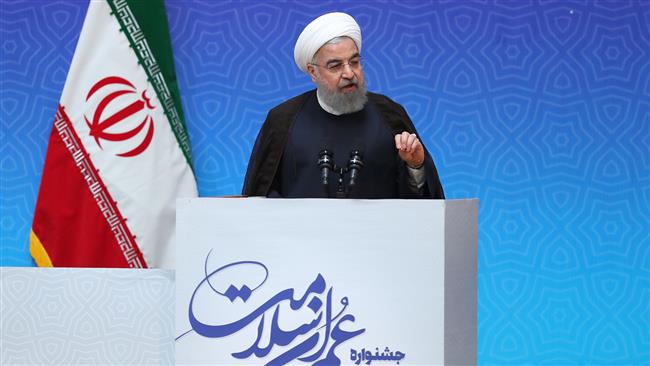
RNA - “In spite of what the Western world would claim, the sanctions didn’t bite the government, they bit the people. When sanctions are imposed on [the sales of] our oil, and the country’s revenues dwindle [as a result], all government services [to the public] are affected,” President Rouhani said on Tuesday.
The Iranian president, who was speaking at a health conference in Tehran, said the “cruel” sanctions had even caused trouble in the procurement of medical equipment, medication, and pharmaceutical raw material.
He referred to his administration’s efforts to engage more deeply in negotiations with a group of world powers over the bans and said, “The first thing that had to be resolved was the issue of the sanctions.”
He said Iranian diplomacy, supported by the people, proved how it can succeed against the machinations of big world powers.
The Iranian nuclear program had been the subject of a global dispute for well over a decade, during much of which Iran engaged in negotiations to resolve the matter diplomatically. But it wasn’t until 2013, when President Rouhani took office, when negotiations between Iran and its latest interlocutors gained increased momentum. Foreign Minister Mohammad Javad Zarif, a veteran diplomat and once Iran’s ambassador to the United Nations, was tasked by President Rouhani to take up the nuclear file.
Zarif and his team engaged in some 22 months of tough negotiations with representatives from six world powers and the European Union before they managed to reach a deal in July 2015, practically ending the long-running dispute.
Under the agreement, which took effect in January 2016, Iran put certain limits on its nuclear program in exchange for, among other things, the removal of all nuclear-related sanctions imposed on the Islamic Republic in what was hailed as a diplomatic feat.
847/940